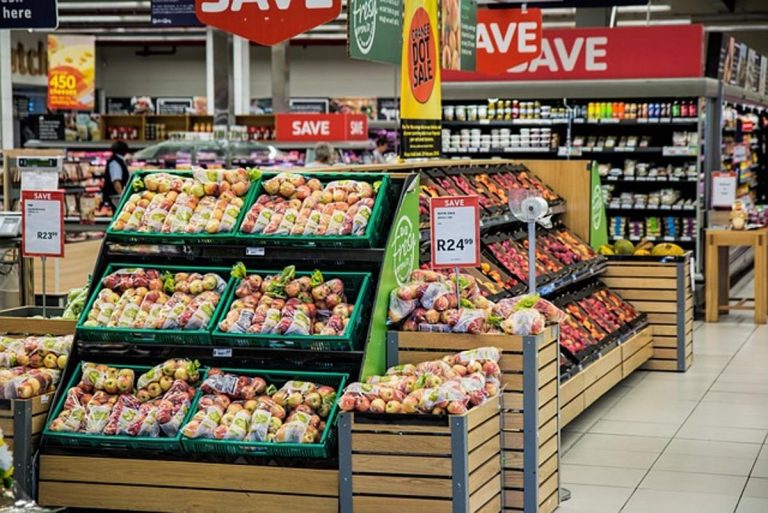The challenges of managing perishable goods for supermarkets in Nigeria is a real menace for business owners. According to the United Nations Food and Agriculture Organization, one-third of all food produced globally is lost or wasted, with supermarkets accounting for a significant portion of this waste. For instance, a study by the National Grocers Association found that the average supermarket loses around 4.1% of its annual sales to shrinkage, including spoilage and waste.
The key to cutting perishable waste in supermarkets lies in implementing effective inventory management strategies, such as reducing overstocks and understocks, improving inventory rotation (First In, First Out – FIFO), using inventory analytics to forecast demand, and managing returns and credits. By adopting these strategies, you can significantly minimize waste, optimize stock levels, and boost profitability.
The Importance of Real-Time Inventory Tracking
As a supermarket manager, you know how frustrating it can be to run out of stock or overstock on perishable items. Consider a scenario where you’re able to track your inventory levels in real-time, ensuring you always have the right products on hand.
With LumiBusiness’ inventory management tool, you gain real-time visibility into your stock levels. You’ll receive alerts when items are running low or approaching expiration, enabling prompt restocking and minimizing waste. The Variant feature allows you to efficiently track different variations of perishable items, such as big or small tomatoes, meat brand or supplier, ensuring accurate stock management.

Reducing Overstocks and Understocks
Overstocking and understocking are common pitfalls for supermarkets, resulting in wasted products and lost sales. For instance, overstocking on perishable items like dairy products or produce can lead to spoilage, while understocking can disappoint customers and drive them to competitors.
LumiBusiness’ advanced inventory management tool helps you avoid these scenarios. With Stock Alerts, you receive notifications when stock levels reach predetermined thresholds, ensuring timely restocking. By using reports and analytics on Lumi Business, you can identify demand patterns that suggest optimal quantities, helping to prevent overstocking. By leveraging these features, you’ll strike the perfect balance between supply and demand, reducing waste and boosting customer satisfaction – a critical aspect of How Effective Inventory Management Helps Supermarkets Cut Perishable Waste. This data-driven approach enables you to make informed decisions, optimizing your inventory and bottom line.
Improving Inventory Rotation (First In, First Out – FIFO)
Effective inventory management is crucial in ensuring older stock is sold before expiration. Consider the example of a dairy section, where expired milk can lead to significant waste and lost revenue.
With LumiBusiness, you can easily implement the First-In, First-Out (FIFO) principle. The system tracks stock history, providing a clear picture of inventory movement over time. This enables you to prioritize older stock, minimizing waste from expired products. By adopting FIFO, you’ll reduce shrinkage, optimize inventory turnover, and enhance customer satisfaction. LumiBusiness’ inventory management tool streamlines this process, helping you master the art of inventory rotation – a vital component of How Effective Inventory Management Helps Supermarkets Cut Perishable Waste.
Using Inventory Analytics to Forecast Demand
Accurately forecasting customer demand is crucial for supermarkets to stay competitive. For instance, anticipating seasonal fluctuations in demand for holiday-themed products or summer barbecue essentials can make all the difference in maximizing sales.
LumiBusiness’ inventory analytics feature provides you with valuable insights into product performance, enabling data-driven purchasing decisions. You’ll gain a clear understanding of which products are flying off the shelves and which ones need a boost. With this information, you can plan restocks, sales promotions, and marketing campaigns more effectively. By leveraging inventory analytics, you’ll optimize stock levels, reduce waste, and increase profitability – a key benefit of How Effective Inventory Management Helps Supermarkets Cut Perishable Waste. This level of visibility empowers you to respond swiftly to changing demand patterns.
Managing Returns and Credits
As a supermarket manager, you’re familiar with the frustration of handling returns due to quality issues, such as spoiled produce or expired dairy products. These returns not only impact customer satisfaction but also lead to unnecessary waste and lost revenue.
LumiBusiness streamlines the returns process, making it efficient and hassle-free. With easy returns management and credit logs, you can track customer returns, identify patterns, and adjust inventory levels accordingly. This enables you to minimize waste, improve customer satisfaction, and make informed purchasing decisions. By leveraging LumiBusiness’ returns management feature, you’ll reduce the administrative burden associated with returns, freeing up resources to focus on what matters most – delivering exceptional customer experiences and driving business growth.
Effective inventory management is the key to unlocking a more sustainable and profitable supermarket operation. By implementing strategies like real-time tracking, FIFO, and demand forecasting, you can significantly reduce perishable waste and boost efficiency.
LumiBusiness’ comprehensive inventory management tool is specifically designed to help you achieve these goals. With its intuitive features and data-driven insights, you’ll be empowered to make informed decisions and optimize your operations. Discover how LumiBusiness can transform your supermarket’s inventory management – visit our inventory management page to learn more and start cutting waste today.
